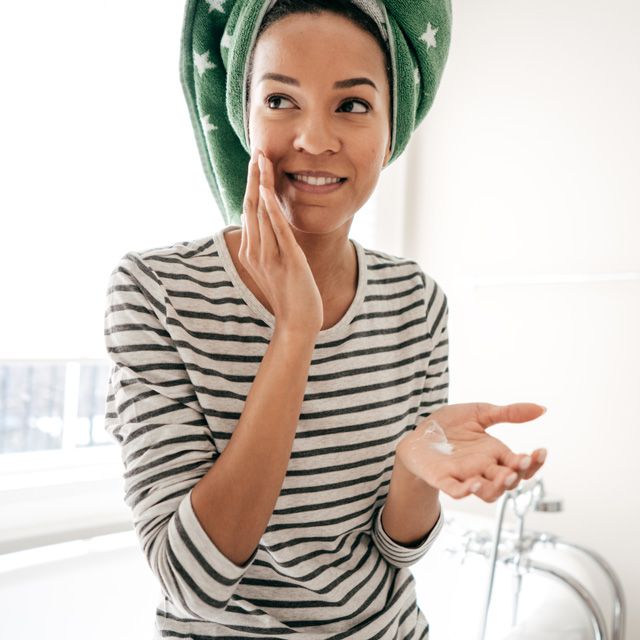A Vanderbilt expert shares winter skin tips to keep you healthy and comfortable all season long.
Let’s take a moment to be thankful our winters aren’t as bad as those of our friends to the north. But even if they don’t get as frigid, Nashville winters can still have a negative impact on our skin.
So what can we do? William Stebbins, M.D., director of Cosmetic and Laser Dermatology at Vanderbilt University Medical Center, explains some important winter skin tips:
Hot showers and winters go together well. But are hot temperatures safe for our skin?
Hotter showers can hurt the skin by causing increased dryness and itchiness, despite how great they feel while taking them. This is due to the fact that the hot water can strip off the top layer of oil in our skin that helps retain moisture. This is further compounded by the fact that hot showers are more often taken in the winter, when there is already less ambient humidity compared to the warmer months.
What are the top three mistakes people make when it comes to skin health?
The No. 1 mistake by far is not using adequate sun protection. Exposure to ultraviolet light is the most preventable risk factor for skin cancers of all types and aging of the skin. The American Academy of Dermatology encourages everyone to protect their skin by applying sunscreen, seeking shade and wearing protective clothing.
No. 2: Indoor tanning. Avoid it: It’s been shown to not only rapidly age the skin, but more importantly, it also significantly increases your risk of all types of skin cancer. If you want to look like you’ve been in the sun, consider using a self-tanning product, but continue to use sunscreen with it.
No. 3: Not considering skin health a lifelong journey. As we say to our patients, it is a marathon, not a sprint! What you may need at age 30 will be different from age 40, 50 and beyond. Establish a relationship with a board-certified dermatologist who can partner with you to evaluate your skin health and make recommendations for both cosmetic and medical purposes.
We remember sunscreen in the summer, but sunscreen when it’s only 40 degrees outside seems out of routine. Why is it important to wear sunscreen in the colder months as well?
Despite the cooler temperatures, UV rays from the sun continue to damage skin during the fall and winter. You can combat their harmful effects by starting your day with a moisturizer that contains sunscreen of at least 30 SPF. If you’re outdoors for prolonged amounts of time, continue to wear a hat, sunglasses and UV-protective lip balm to combat the aging process and decrease your risk of skin cancer.
Should people change their body products (for example, face wash, moisturizer, body scrubs) in the winter? If so, what kind of products should they look for?
During the cooler months, minimize the daily use of any harsh products such as abrasive skin cleansers and toners. Instead, use a mild cleanser and moisturizer that minimizes any moisture loss from the skin. Remoisturizing before bedtime will help to keep your skin hydrated while you sleep. This will significantly improve much of the dryness and irritation that can come with the cooler months.
What are some signs that a person should contact a dermatologist?
If you notice anything changing, itching or bleeding on your skin, see a dermatologist. Skin cancer is very treatable when caught early. Warning signs of melanoma include changes in size, shape or color of a mole or other skin lesion; the appearance of a new growth on the skin; or a sore that doesn’t heal.


Vanderbilt Dermatology offers a full range of services to get your skin healthy and keep it healthy. We offer many noninvasive therapies, such as medication and light treatments, for a wide range of conditions. To make an appointment with one of our specialists, call 615-322-6485.

